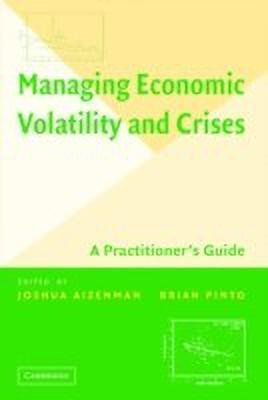Managing Economic Volatility and Crises(English, Hardcover, unknown)
Quick Overview
Product Price Comparison
Economic volatility has come into its own after being treated for decades as a secondary phenomenon in the business cycle literature. This evolution has been driven by the recognition that non-linearities, long buried by the economist's penchant for linearity, magnify the negative effects of volatility on long-run growth and inequality, especially in poor countries. This collection organizes empirical and policy results for economists and development policy practitioners into four parts: basic features, including the impact of volatility on growth and poverty; commodity price volatility; the financial sector's dual role as an absorber and amplifier of shocks; and the management and prevention of macroeconomic crises. The latter section includes a cross-country study, case studies on Argentina and Russia, and lessons from the debt default episodes of the 1980s and 1990s.


